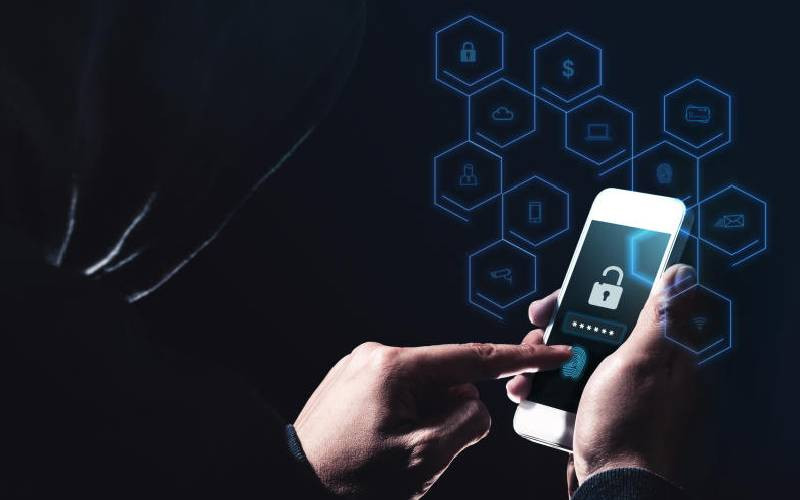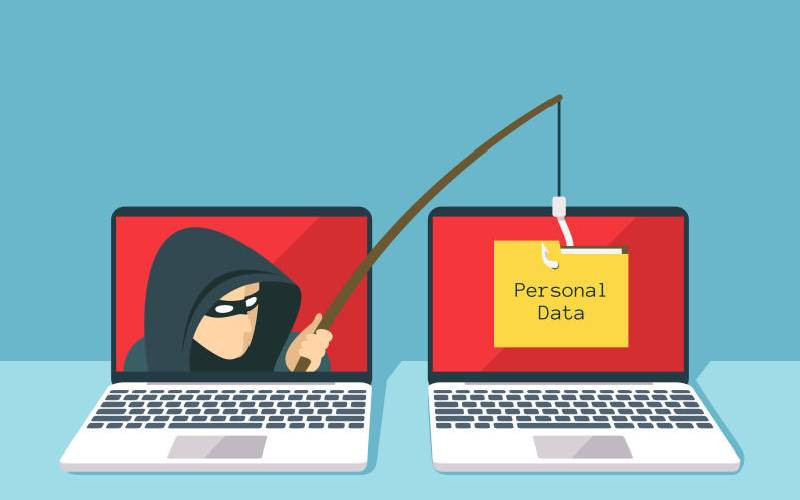NAIROBI, KENYA: The business of kidnapping computer data and asking for a ransom has never been too real and it is sparing nobody.
On Wednesday an attack similar to one in May literally ground Ukraine government services, banks, state power utility and Kiev’s airport and metro system to a standstill.
Petya, a Bulgarian female name is what the hacker has given this venomous file that literally locks you out of your computer.
Immediately it left Ukraine it spread through Europe and USA affecting companies in France, Denmark and Pittsburgh, Pennsylvania.
Danish shipping giant Maersk was hacked affecting container shipping, port and tug boat operations, oil and gas production, drilling services, and oil tankers, as well as seventeen container terminals. U.K. media company WPP’s website was knocked offline.
And the designer of this attack is asking for Sh30,000 ($300) in an online anonymous currency known as Bitcoin which is banned in Kenya by Central Bank Governor Patrick Njoroge.
Kenya’s communication regulators have warned that the attacks have the potential to spread globally like the May attack dubbed WannaCry that hit 19 Kenyan firms and more than 300,000 users in about 300 countries.
“Ransomware is a type of malicious software that infects a computer and restricts users’ access to the infected computer until a ransom is paid to unlock it. The ransomware virus, which goes by the name Petya, is similar to the WannaCry ransomware virus that massively attacked computers across the world in May this year,” Christopher Kemei, a Director at the Communications Authority of Kenya (CA) said.
The virus directed those affected to pay up and send information to [email protected]
The commission however said that although the hacker is asking for a tiny sum, companies should not be in a hurry to pay up the ransom as there is no assurance that this may solve their problems.
This is especially after the German email provider blocked the email account the virus was using to manage ransom demands saying it does not tolerate the misuse of its platform.
“Individuals and organizations are discouraged from paying the ransom, as this does not guarantee restoration of access,” CA said.
The commission authority urged Kenyan firms to store their data in back-ups so that in case of an attack they may as well retrieve it and operate offline, update their anti-virus software and operating system and be vigilant when opening emails.
Russia’s Rosneft, the country’s’ largest crude producer, said it avoided serious consequences from the hacker attack by switching to a backup system for managing production processes.
“Be alert when opening emails especially if they contain links or attachments. You should also take special attention of any email attachment that advises you to enable macros to view its content. Unless you trust the source, do not enable macros and instead delete the email immediately and permanently,” CA said.
Stay informed. Subscribe to our newsletter
Unlike WannaCry, this new virus that attacks computers operating on windows operating software does not target emails but the administrator computer which then spreads through the whole network.
While WannaCry was easily stopped by installing a patch some analysts say the new virus is more refined installing itself as a software update, Microsoft word laced with macros and even remotely before taking over the administrator.
“It’s not yet clear how computers became infected with the ransomware in the first place, but it doesn’t seem to be through email as happened with WannaCry,” The Guardian newspaper reported.
CA however insisted that individuals and companies avoid clicking on links or opening attachments or emails from people or sources you don't know or companies you don't do business with.
This comes just days after the Central Bank of Kenya directed all banks to furnish it with a cyber-security policy by end of August to guard against increasing cyber risk that keeps on morphing due to the evolution of cyber threats in Kenya and across the globe.
The CBK’s Draft Guidance note on Cyber Risk wants board of directors and senior management of a financial institution regulated by the CBK to formulate and implement Cyber Risk strategies, policy, procedures, guidelines and set minimum standards for an institution.
A report released by the CA and the Kenya National Bureau of Statistics (KNBS) found that only 36.6 per cent of enterprises surveyed in Kenya reported having ICT security policy, leaving a whopping 63 per cent without any form of security measure.
However, almost all firms surveyed (97.6 per cent) reported to have at least one form of IT security measure, mostly an antivirus programme, antispam-ware, computer passwords, regular backups of critical data, and firewalls.
Large firms deployed the security measures more than the small ones.
NAIROBI, KENYA: The business of kidnapping computer data and asking for a ransom has never been too real and it is sparing nobody.
Yesterday an attack similar to one in May literally ground Ukraine government services, banks, state power utility and Kiev’s airport and metro system to a standstill.
Petya, a Bulgarian female name is what the hacker has given this venomous file that literally locks you out of your computer.
Immediately it left Ukraine it spread through Europe and USA affecting companies in France, Denmark and Pittsburgh, Pennsylvania.
Danish shipping giant Maersk was hacked affecting container shipping, port and tug boat operations, oil and gas production, drilling services, and oil tankers, as well as seventeen container terminals. U.K. media company WPP’s website was knocked offline.
And the designer of this attack is asking for Sh30,000 ($300) in an online anonymous currency known as Bitcoin which is banned in Kenya by Central Bank Governor Patrick Njoroge.
Kenya’s communication regulators have warned that the attacks have the potential to spread globally like the May attack dubbed WannaCry that hit 19 Kenyan firms and more than 300,000 users in about 300 countries.
“Ransomware is a type of malicious software that infects a computer and restricts users’ access to the infected computer until a ransom is paid to unlock it. The ransomware virus, which goes by the name Petya, is similar to the WannaCry ransomware virus that massively attacked computers across the world in May this year,” Christopher Kemei, a Director at the Communications Authority of Kenya (CA) said.
The virus directed those affected to pay up and send information to [email protected]
The commission however said that although the hacker is asking for a tiny sum, companies should not be in a hurry to pay up the ransom as there is no assurance that this may solve their problems.
This is especially after the German email provider blocked the email account the virus was using to manage ransom demands saying it does not tolerate the misuse of its platform.
“Individuals and organizations are discouraged from paying the ransom, as this does not guarantee restoration of access,” CA said.
The commission authority urged Kenyan firms to store their data in back-ups so that in case of an attack they may as well retrieve it and operate offline, update their anti-virus software and operating system and be vigilant when opening emails.
Russia’s Rosneft, the country’s’ largest crude producer, said it avoided serious consequences from the hacker attack by switching to a backup system for managing production processes.
“Be alert when opening emails especially if they contain links or attachments. You should also take special attention of any email attachment that advises you to enable macros to view its content. Unless you trust the source, do not enable macros and instead delete the email immediately and permanently,” CA said.
Unlike WannaCry, this new virus that attacks computers operating on windows operating software does not target emails but the administrator computer which then spreads through the whole network.
While WannaCry was easily stopped by installing a patch some analysts say the new virus is more refined installing itself as a software update, Microsoft word laced with macros and even remotely before taking over the administrator.
“It’s not yet clear how computers became infected with the ransomware in the first place, but it doesn’t seem to be through email as happened with WannaCry,” The Guardian newspaper reported.
CA however insisted that individuals and companies avoid clicking on links or opening attachments or emails from people or sources you don't know or companies you don't do business with.
This comes just days after the Central Bank of Kenya directed all banks to furnish it with a cyber-security policy by end of August to guard against increasing cyber risk that keeps on morphing due to the evolution of cyber threats in Kenya and across the globe.
The CBK’s Draft Guidance note on Cyber Risk wants board of directors and senior management of a financial institution regulated by the CBK to formulate and implement Cyber Risk strategies, policy, procedures, guidelines and set minimum standards for an institution.
A report released by the CA and the Kenya National Bureau of Statistics (KNBS) found that only 36.6 per cent of enterprises surveyed in Kenya reported having ICT security policy, leaving a whopping 63 per cent without any form of security measure.
However, almost all firms surveyed (97.6 per cent) reported to have at least one form of IT security measure, mostly an antivirus programme, antispam-ware, computer passwords, regular backups of critical data, and firewalls.
Large firms deployed the security measures more than the small ones.
 The Standard Group Plc is a
multi-media organization with investments in media platforms spanning newspaper
print operations, television, radio broadcasting, digital and online services. The
Standard Group is recognized as a leading multi-media house in Kenya with a key
influence in matters of national and international interest.
The Standard Group Plc is a
multi-media organization with investments in media platforms spanning newspaper
print operations, television, radio broadcasting, digital and online services. The
Standard Group is recognized as a leading multi-media house in Kenya with a key
influence in matters of national and international interest.
 The Standard Group Plc is a
multi-media organization with investments in media platforms spanning newspaper
print operations, television, radio broadcasting, digital and online services. The
Standard Group is recognized as a leading multi-media house in Kenya with a key
influence in matters of national and international interest.
The Standard Group Plc is a
multi-media organization with investments in media platforms spanning newspaper
print operations, television, radio broadcasting, digital and online services. The
Standard Group is recognized as a leading multi-media house in Kenya with a key
influence in matters of national and international interest.








